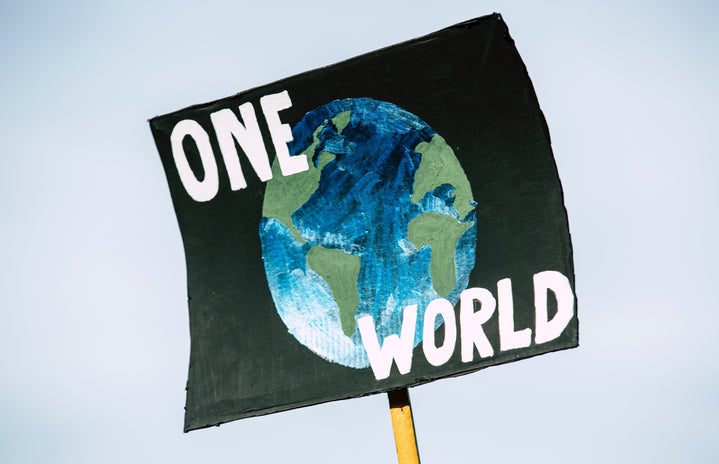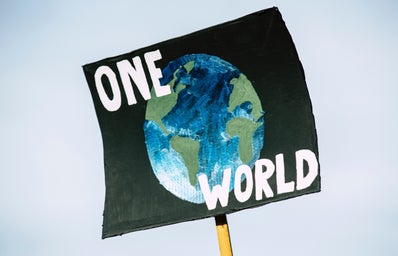Last school year, I attended the 2019 Montreal Climate March. I remember feeling empowered by participating in such a large protest for an extremely important cause. However, since that protest, the 2020 Australian wildfires burned through more than 17.9 million acres of land, 2020 tied with 2016 for the hottest year on record, and 2020 had a record hurricane season with thirteen hurricanes when the average season has six. Not to mention, we’re living through a global pandemic, and pandemics have been shown to be directly related to climate change. Increased industrialization and urbanization, along with deforestation for agricultural and other purposes, continue to force animals to migrate, potentially spreading their germs to humans and other animals.
I’m a firm believer that protests and demonstrations are useful, but only if action can continue to be sustained after the protest. And while I do believe that in order to truly improve the climate crisis we need to establish laws and legislation and prevent big corporations from continuing their mass destruction of the planet, I still feel that we all need to do our part as citizens of the world.
Thus, this past year, I’ve begun my journey towards becoming a more eco-friendly individual. Here are some of my top tips that I’ve learned along the way.
- Work on reducing your own food waste
-
Food waste is definitely a bigger problem than most people realize. In fact, “if food loss were a country, it would be the third largest greenhouse gas emitter, behind China and the US” (earth.org). Luckily, Montreal has a compost system that allows residents to easily dispose of their compostable food waste. Another way I’m able to reduce my food waste is by freezing meals, which then typically can last for up to four months. I also freeze products like loafs of bread or muffins that I’ve made. Finally, I also try to plan out my meals to a certain extent—nothing crazy, just so I’m able to use up the second half of that can of diced tomatoes before it goes bad.
- Cut out the paper towel
-
I definitely acknowledge that there are moments when I’d still rather use disposable paper towels instead of a reusable version. However, this past year I’ve managed pretty well with my reusable paper towel and swedish dishcloths. Once the reusable versions are dirty, I pop them into the washing machine and they come out looking brand new!
- Eat a more plant-based diet
-
I’m not trying to convince anyone to go completely vegetarian or vegan. While I’m vegetarian, I understand that this lifestyle isn’t sustainable for everyone. Yet, I still believe that by attempting to eat more plant based—maybe incorporating one meatless meal a day or reducing your overall dairy intake—would do wonders for the environment. The world needs more people eating imperfect plant-based diets than it does a few people eating perfectly plant-based diets.
- Cook at home more instead of going out
-
Not only does this reduce the trash that comes along with takeout, it also can be a great way to save money!
- Examine your own trash
-
In my opinion, this tip is one of the best ones out there. Once you know what you’re throwing away, then you can decide what you’d be able to switch to a more sustainable option. For example, regular toothbrushes must go in the trash. However, if you’re able you can switch to a bamboo toothbrush which can go in the compost instead!
If you decide to begin an eco-friendly quest, remember to be kind to yourself along the way. No one is perfect and mistakes will be made. Remind yourself that any progress, no matter how small, is still making an impact!
Information obtained from:
https://www.cnn.com/2020/01/01/australia/australia-fires-explainer-intl-…
https://climate.nasa.gov/news/3061/2020-tied-for-warmest-year-on-record-…
https://blog.ucsusa.org/astrid-caldas/rapid-intensification-unprecedente…
https://www.hsph.harvard.edu/c-change/subtopics/coronavirus-and-climate-…


